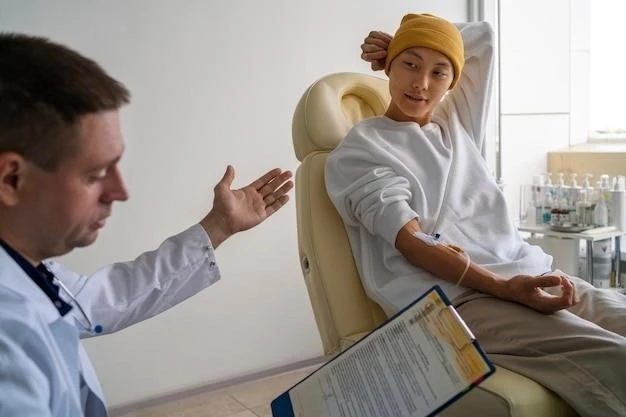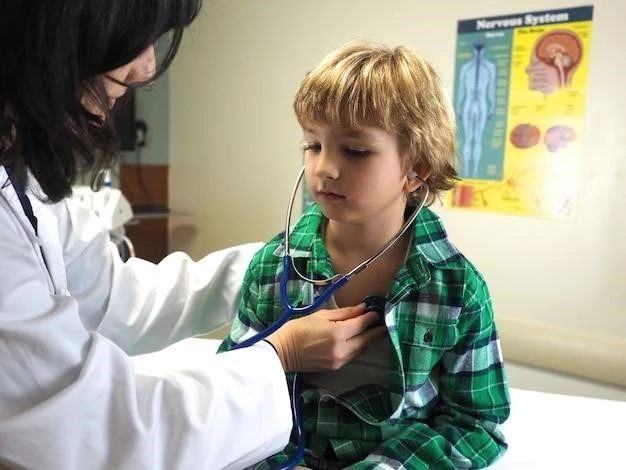Disease ⎯ Koone-Rizzo-Elias Syndrome
Overview of Koone-Rizzo-Elias Syndrome
Koone-Rizzo-Elias syndrome is a rare hereditary genetic disorder characterized by a variety of medical conditions. It presents with a unique set of symptoms that can vary in severity among individuals. Diagnosis of this syndrome can be challenging due to its rarity and the complexity of its symptoms.
Understanding the nature of Koone-Rizzo-Elias syndrome is crucial for individuals and families affected by it. Being informed about the condition can help in early detection and management of symptoms. It is important to consult with medical professionals specializing in rare genetic disorders for accurate diagnosis and personalized treatment plans.
Individuals living with Koone-Rizzo-Elias syndrome may face physical and emotional challenges, requiring comprehensive care and support. Research on this syndrome is ongoing, offering hope for advancements in treatment and care strategies. Stay informed, seek medical advice, and connect with support networks to better navigate the complexities of this condition.
Causes and Diagnosis of Koone-Rizzo-Elias Syndrome
Koone-Rizzo-Elias syndrome is a hereditary genetic disorder caused by specific genetic mutations. The inheritance pattern of this syndrome follows a rare autosomal dominant mode. Diagnosis of Koone-Rizzo-Elias syndrome involves genetic testing, clinical evaluation, and assessment of symptoms.
Genetic counseling plays a key role in understanding the inheritance pattern and recurrence risks associated with Koone-Rizzo-Elias syndrome. It is essential for affected individuals and their families to undergo comprehensive genetic testing to confirm the presence of specific mutations linked to this condition.
Diagnosing Koone-Rizzo-Elias syndrome requires multidisciplinary collaboration among geneticists, medical specialists, and healthcare professionals. Early detection of the syndrome through accurate genetic testing enables proactive management of symptoms and personalized treatment approaches. Stay proactive in pursuing genetic evaluations if there is a suspicion of Koone-Rizzo-Elias syndrome within your family.

Common Symptoms of Koone-Rizzo-Elias Syndrome
Koone-Rizzo-Elias syndrome manifests with a range of symptoms that can affect multiple systems in the body. Common symptoms include developmental delays, intellectual disability, distinctive facial features, musculoskeletal abnormalities, and neurological issues.
Individuals with Koone-Rizzo-Elias syndrome may experience challenges with motor skills, speech development, and cognitive functions. Other symptoms such as heart defects, vision problems, and gastrointestinal issues can also be present. Early identification of these symptoms is crucial for timely intervention and management.
Monitoring and addressing the diverse symptoms associated with Koone-Rizzo-Elias syndrome require a coordinated approach involving healthcare providers, therapists, and support services. It is important for caregivers and individuals affected by this syndrome to be aware of the common symptoms and seek appropriate medical attention to optimize treatment outcomes;
Treatment Options for Koone-Rizzo-Elias Syndrome
Managing Koone-Rizzo-Elias syndrome involves a multidisciplinary approach tailored to address individual symptoms. Treatment options focus on symptom management, developmental support, and addressing specific medical needs. Early intervention programs can help optimize outcomes for individuals with this syndrome.
Therapies such as speech therapy, occupational therapy, and physical therapy play a crucial role in enhancing communication skills, motor function, and daily living abilities. Medical interventions for associated health issues, such as surgeries for structural abnormalities or medications for specific conditions, may be part of the treatment plan.
Educational support and behavioral interventions are essential for individuals with Koone-Rizzo-Elias syndrome to thrive academically and socially. Caregivers and family members are encouraged to work closely with healthcare providers to ensure a holistic approach to treatment. Stay informed about available interventions and participate actively in creating a comprehensive care plan for better quality of life.
Prognosis and Management of Koone-Rizzo-Elias Syndrome
The prognosis for individuals with Koone-Rizzo-Elias syndrome can vary based on the severity of symptoms and the effectiveness of interventions. Early diagnosis and comprehensive management play a critical role in improving outcomes and quality of life.
Effective management strategies involve regular monitoring of symptoms, adjusting treatment plans as needed, and providing ongoing support for individuals and their families. Collaborating with healthcare professionals, therapists, and educators can facilitate a proactive approach to managing the challenges associated with this syndrome.
While Koone-Rizzo-Elias syndrome presents complex medical and developmental concerns, proactive and personalized care can significantly impact the long-term prognosis. Engage in open communication with the healthcare team, adhere to treatment recommendations, and access community resources to enhance the management of this rare genetic condition.
Research and Future Developments for Koone-Rizzo-Elias Syndrome
Ongoing medical research and advancements in genetics are paving the way for a better understanding of Koone-Rizzo-Elias syndrome. Researchers are exploring novel treatment approaches, genetic therapies, and targeted interventions to address the specific challenges faced by individuals with this rare genetic disorder.
Participation in clinical trials and research studies focused on Koone-Rizzo-Elias syndrome can contribute to the discovery of new treatment modalities and improve the overall management of the condition. Engage with healthcare providers to stay informed about emerging research findings and potential breakthroughs in the field.
Advocacy for increased awareness and funding for research into Koone-Rizzo-Elias syndrome is vital for driving innovation and enhancing outcomes for affected individuals. Embrace a hopeful outlook for the future as medical advancements continue to shape the landscape of diagnosis, treatment, and care for this complex genetic syndrome.
